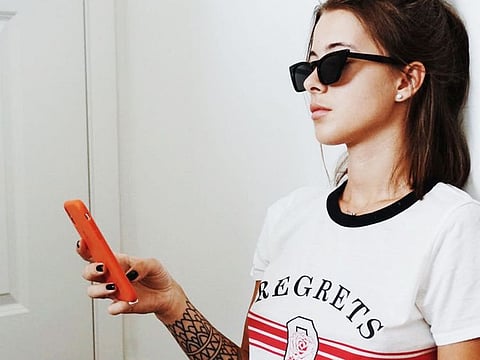The Coronavirus pandemic made my phone addiction worse
Being without my phone makes me anxious

Since before we ever caught a whiff of the coronavirus pandemic, I knew I had a phone problem. My screen time was very high. Like… eight hours a day high. And this was when I was out and about. At work, with friends or at dinner at the gym.
These days, with much less to do and more time at home, my screen time has soared to an average of 10 hours and 40 minutes a day. I also pick up my phone an average of 229 times a day according to the screen time calculator that likes to remind me every week of my “problem”.
I don’t consider my phone addiction a bad thing. Don’t get me wrong, I totally get that 10 hours a day makes me sound like an unhealthy and obsessed person, but honestly it’s one of my only vices. It’s not like I smoke or something. I consider myself a stable, normal person. But I know I lack in understanding the importance of a technology free life, or at least a technology free day.
You know those people, who can leave their phones in another room and disappear for the day. Maybe go to a park, or step into the mall. I consider those who don’t need to look at their phones, lucky and probably really fulfilled. They seem to have an IRL present life and don’t need to constantly be waiting for a text back, or a WhatsApp group to give them entertainment or something to do.
Even before coronavirus, I sleep next to my phone, I drive with it next to me (for music of course!), I read on it, I watch videos on it, I talk to my favourite people on it. It’s my whole world.
But I also know that I am a prisoner to my phone
You would think that with a pandemic keeping me home, I would try and change any of my bad habits, but in reality, my bad phone habit has gotten a lot worse.
I spend more time talking to people on the phone, texting my friends, scrolling Instagram. I’ve probably even introduced more apps into my life. Tik Tok, Instashop, Zoom. Spending more time on my phone, I’ve noticed, has actually made me feel more tired. As much as I hate to admit it, it has also made me feel more anxious. I look at social media so much more.
According to a recent survey by the Royal Society for Public Health in the United Kingdom, social media has been described as more addictive than cigarettes and alcohol.
The image-sharing social platforms also cause high levels of anxiety and depression. These days, it does help knowing that everyone is going through “The same thing”, “We are all in this together etc.”
But even some people’s self-isolation lifestyle can make you feel like you are missing out, or not doing enough with your time.
These feelings promote a ‘compare and despair’ attitude, where we look at what someone else has and wonder why we can’t be the same. I have succeeded previously in filling my life enough not to look at social media, but these days being stuck at home triggers people to look at social media more.
Although most of us know that social media isn’t great for mental health in normal situations, let alone during a pandemic, it is the hardest thing to give up on social media after all. We scroll through perfectly curated Instagram posts capturing people’s moments at home.
We just need to realise, that it isn’t real.
Sign up for the Daily Briefing
Get the latest news and updates straight to your inbox




